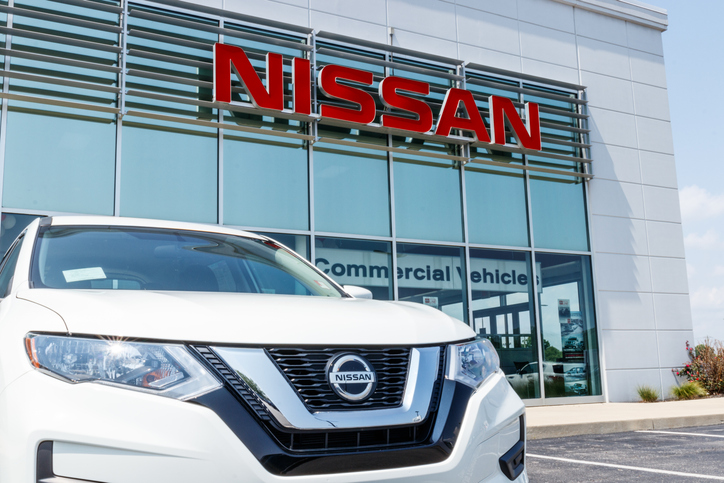Nissan Cuts 9,000 Jobs, CEO Takes Pay Cut as Carmaker Faces Global Crisis
Nissan, Japan's third-largest carmaker, has launched an aggressive turnaround strategy to tackle severe financial setbacks and regain footing in a rapidly shifting global automotive market. The company recently announced plans to eliminate 9,000 jobs globally—nearly 7% of its workforce—and revealed that CEO Makoto Uchida will take a voluntary 50% pay cut as part of an effort to stabilize the company amid falling revenues and intense competition. Nissan’s restructuring comes at a pivotal time as the company grapples with the challenges posed by the electric vehicle (EV) transition, changing consumer demands, and increased market competition from China.
Financial Setbacks and Profit Decline
Nissan’s woes became evident as it reported a sharp decline in quarterly earnings, posting a ¥9.3 billion ($62 million) net loss—a stark contrast from the ¥190.7 billion profit it reported in the same period last year. Revenues also dropped by 5% to ¥2.99 trillion. As part of its emergency measures, Nissan announced it will slash global production capacity by 20% and cut costs by ¥400 billion ($2.6 billion). The company also slashed its production forecast for the year to 3.2 million vehicles, down from a previous projection of 3.45 million. These moves reflect the urgency of Nissan’s situation, and the pressure to adapt quickly in a volatile industry.
"This has been a lesson learned," Uchida admitted in a virtual press conference.
"We have not been able to keep up with the times, especially as hybrid electric and plug-in hybrid vehicles have outpaced our expectations in terms of consumer interest."
This lack of foresight, he noted, has placed Nissan in a precarious position as the company struggles to compete with other global players, especially as EV sales falter and hybrids dominate.
Restructuring and Job Cuts: A Path to Recovery
In a bid to address these financial troubles, Nissan announced plans to downsize its workforce significantly, cutting 9,000 jobs worldwide. This move affects nearly 7% of Nissan’s global workforce of 133,580 employees, as the company looks to become more efficient by streamlining operations and optimizing production costs. These cuts will primarily impact production plants where demand has dropped, and Nissan is aiming to achieve leaner operations and a sustainable cost structure.
The layoffs are part of a broader strategy to reduce production costs and shift focus to high-demand markets such as the United States and China. Nissan’s management hopes that these changes will better position the company to withstand global economic challenges, reduce operational expenses, and lay the groundwork for future profitability.
Strategic Partnerships and Market Adaptation
As part of its restructuring, Nissan has also made adjustments to its alliances to boost competitiveness and bolster its product lineup. This includes a recalibration of its long-standing relationship with Mitsubishi Motors, in which Nissan has reduced its stake from 34% to 24%. Additionally, Nissan has pivoted to strengthen its partnership with Honda, a move that aims to help both companies share resources, reduce production costs, and enhance innovation.
This strengthened alliance with Honda focuses on developing a new line of electric vehicles by the end of the decade and improving the software capabilities of future models. "Strengthening our partnerships with Honda and Mitsubishi is key to overcoming our current challenges," Uchida explained, emphasizing the critical role of alliances in Nissan’s turnaround efforts. This partnership is designed to help Nissan compete against the growing dominance of Chinese EV manufacturers, which have made significant strides in capturing global market share with affordable, high-tech models.
The move to align more closely with Honda comes after Nissan’s decades-long alliance with Renault faced challenges. Though Nissan remains in partnership with Renault, the recent shift underscores the carmaker's intention to diversify its alliances and reduce reliance on any single partner.
Competitive Pressures and Shifting Market Dynamics
The global automotive industry has been facing a period of unprecedented transformation, with automakers scrambling to meet the demands of a rapidly evolving market landscape. For Nissan, one of the primary challenges has been the intense competition from Chinese EV manufacturers, which have quickly gained a stronghold in China—the world’s largest EV market—by offering affordable and tech-savvy options.
Nissan is not alone in facing these industry-wide pressures. Volkswagen recently announced plans to close several German plants, marking the first such closures in its 87-year history, while Stellantis (parent company of Peugeot, Fiat, and Jeep) recently undertook a major management overhaul in response to declining U.S. sales. As traditional automakers grapple with high production costs and increasing demand for electric and hybrid vehicles, many are being forced to re-evaluate long-standing practices and adopt new strategies for survival.
Nissan’s New Leadership Structure and Decision-Making
In an effort to drive its turnaround, Nissan is restructuring its leadership team and introducing a new role to enhance accountability. A chief performance officer (CPO) will be appointed in December, tasked with overseeing sales and profitability. This new position is expected to empower faster decision-making and enable Nissan to adapt quickly to market shifts, a necessity in today’s volatile automotive landscape. Uchida emphasized that this change is designed to facilitate more agile and responsive leadership, as the company takes urgent steps to address its financial and operational challenges.
The addition of a CPO highlights Nissan’s commitment to rebuilding from within and addressing long-standing issues with its decision-making processes. By creating a role specifically focused on performance, Nissan aims to make timely, data-driven decisions to keep pace with the fast-moving market.
Related: Honda and Nissan Explore Merger to Rival Global Giants
Related: Alba’s Ambitious Growth Strategy: CEO Ali Al Baqali on Becoming a Global Aluminium Giant
A New Product Strategy: Targeting High-Growth Markets
In addition to workforce and leadership restructuring, Nissan plans to overhaul its product lineup, particularly in key markets such as China and the U.S. In China, where EV demand is substantial, Nissan will focus on launching new electric vehicles, while in the U.S., the company aims to expand its plug-in hybrid offerings to capture growing consumer interest. This market-tailored approach is intended to ensure that Nissan’s vehicles align closely with regional demand, and it demonstrates the company’s renewed focus on competitiveness.
While Nissan’s challenges remain significant, the company’s recent moves could pave the way for a leaner, more resilient future. With ambitious goals for its EV lineup and strategic alliances with Honda and Mitsubishi, Nissan is positioning itself to adapt to a fast-changing landscape and meet the demands of a global market that is increasingly focused on sustainable, technology-driven mobility solutions.
Related: Chipotle Appoints Scott Boatwright as Permanent CEO Amid Growth Challenges and Future Opportunities
Industry Outlook and Nissan's Prospects
The broader implications of Nissan’s turnaround strategy will unfold in the coming years, but Uchida’s commitment to a "leaner, more resilient" Nissan signals a readiness to take bold steps. As the auto industry contends with technological change, global competition, and economic uncertainty, Nissan’s leaner approach could serve as a model for other automakers facing similar challenges.
Nissan's emphasis on strategic partnerships, market adaptability, and operational efficiency reflects the evolution of an industry that is rapidly moving toward a more interconnected, technologically advanced future. While the path to recovery may be complex, Nissan’s willingness to reimagine its business model and address long-standing inefficiencies could ultimately help it emerge stronger in an intensely competitive landscape.
For now, as Nissan's CEO takes a personal pay cut and the company cuts thousands of jobs to balance its books, the carmaker hopes that these difficult measures will lead to long-term sustainability and profitability in an increasingly challenging global market.











